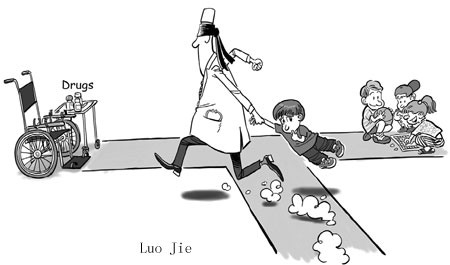Distinguish shyness from social anxiety disorder

Few children relish the start of a new school year. Most yearn for summer to continue and greet the onset of classes with groans or even dread. But among those who take the longest to adapt and thrive, psychiatrists say, are children trapped in a pathological condition. They are so acutely shy that they are said to suffer "social anxiety disorder" - an affliction of children and adolescents that, the clinicians argue, is spreading.
It may seem baffling, even bizarre, that ordinary shyness could assume the dimension of a mental disease. But if a youngster is reserved, the odds are high that a psychiatrist will diagnose social anxiety disorder and recommend treatment.
How much credence should we give the diagnosis? Shyness is so common among American children that 42 percent exhibit it. And, according to one major study, the trait increases with age. By the time they reach college, up to 51 percent of men and 43 percent of women describe themselves as shy or introverted. Among graduate students, half of men and 48 percent of women do. Psychiatrists say that at least one in eight of these people needs medical attention.















